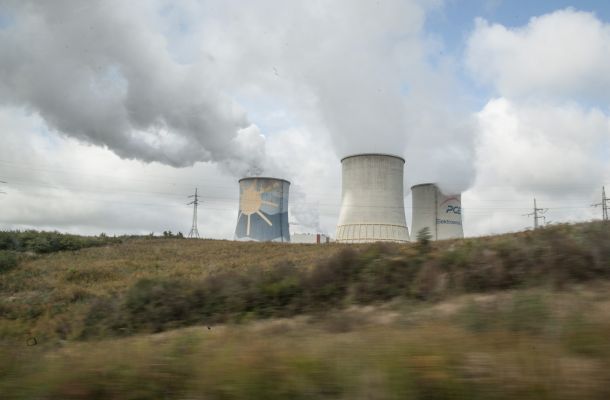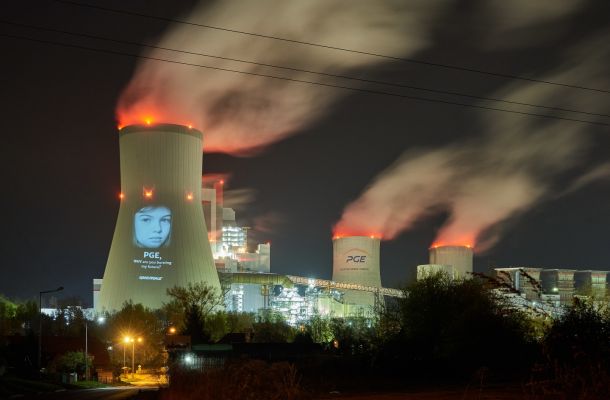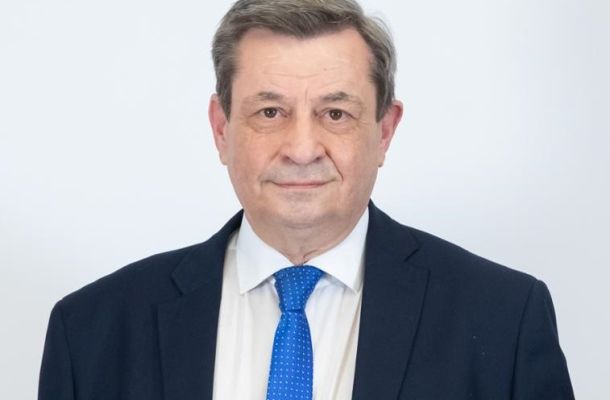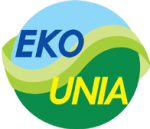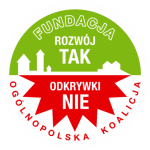Does mBank burn coal from Turów mine?
mBank supports the PGE group, one of the most CO2-intensive companies in Europe.
Popular among young people in Czechia and Poland, mBank supports financially the activities of PGE group. In 2015, together with other banks, it granted the company a loan of PLN 3.63 billion. The PGE Group plans to expand the controversial Turów opencast, which destroys underground waters in the region and may deprive 30,000 Czechs from the Liberec border region of access to drinking water.
On March 27, 2020, during an annual general meeting of mBank shareholders, questions regarding mBank's climate policy were raised. Kuba Gogolewski pointed out that in September 2015 mBank signed a long-term loan agreement with PGE, along with other banks, granting it a loan of PLN 3.63 billion.
This is not all of the bank's dirty business. In May 2019, mBank helped Enea issue domestic bonds. At that time, construction of the Ostrołęka C hard coal power plant was underway, and Enea and Energa sought funding for this purpose. Then, in February 2020, mBank granted the mining machines manufacturer Famur a loan of PLN 35 million with a repayment date of 30.06.2022.
Meanwhile, more and more banks are giving up financing for the coal sector. Their clients are beginning to understand that financial institutions, by granting corporate loans or bond issues, enable coal companies to function, and thus are jointly responsible for the climate crisis, destruction of our health and future.
Coal is dirty, greenwashing will not help
mBank is trying to refute allegations that it’s financing the climate disaster, providing arguments about the credit policy towards high-carbon industries from April 2019 and supporting investments in renewable energy. However, taking a closer look at its activities is enough to see that it is pure greenwashing. mBank is far from implementing any sensible climate policy in fear of losing corporate clients from the coal sector.
Although the mBank policy of 2019 excludes direct financing of coal projects, it does not limit the possibility of issuing bonds or granting corporate loans to companies such as PGE, ZE PAK, Enea, Bogdanka, Tauron or Famur that build coal mines and power plants, or produce mining equipment.
mBank boasts of investments in renewable energy. However, the construction of renewable energy sources will not stop a climate catastrophe if it does not go hand in hand with a shift away from coal energy. As long as companies like mBank cooperate with the coal sector, we will not reduce CO2 emissions and we will be moving further away from the objectives of the Paris Agreement.
If mBank really wants to stop supporting the climate crisis, it must first of all cease cooperation with companies involved in the coal sector, such as: PGE (which, among others, plans to expand the Turów open pit, depriving Czechs of water), ZE PAK, Enea, Bogdanka, Tauron or Famur.
Why not follow suit?
The main shareholder of mBank is the German Commerzbank, which has a very progressive climate policy. If mBank followed the example of its parent company, it would be one of the greenest banks in Poland next year.
There are also many role models on the Polish market. Credit Agricole in a policy announced in June 2019 has committed itself to completely abandon coal in its investment portfolio by 2030, in all EU and OECD countries, as well as to cease cooperation with corporations that are currently developing or planning coal-related investments (in mining , coal-fired power plants, machinery and transport infrastructure).
Unfortunately, instead of following the green trends, mBank has a financial policy that allows it to support companies such as PGE, which has just obtained the licence from the Ministry of Climate for further operation of the Turów opencast. Its activities may deprive the inhabitants of the Liberec Region of water, it also generates significant noise and air pollution by dust.
Is the management board not afraid that young people from Poland, Czech Republic and Slovakia, who often use mBank services, will no longer want to support the bank financing the climate crisis?
Popularne Artykuły
PGE myths vs reality
Why are you burning our future?
Polish prime minister dismisses for the truth about Turów
About Us
Our organizations jointly counteract the expansion of the open-cast Turów lignite mine in Poland for the benefit of local communities, nature and climate. We support civic activities undertaken by the international community at the interface of the Czech Republic, Germany and Poland. We strive to make the lignite-dependent Bogatynia enter the path of energy transition as well as economic and social transformation.
